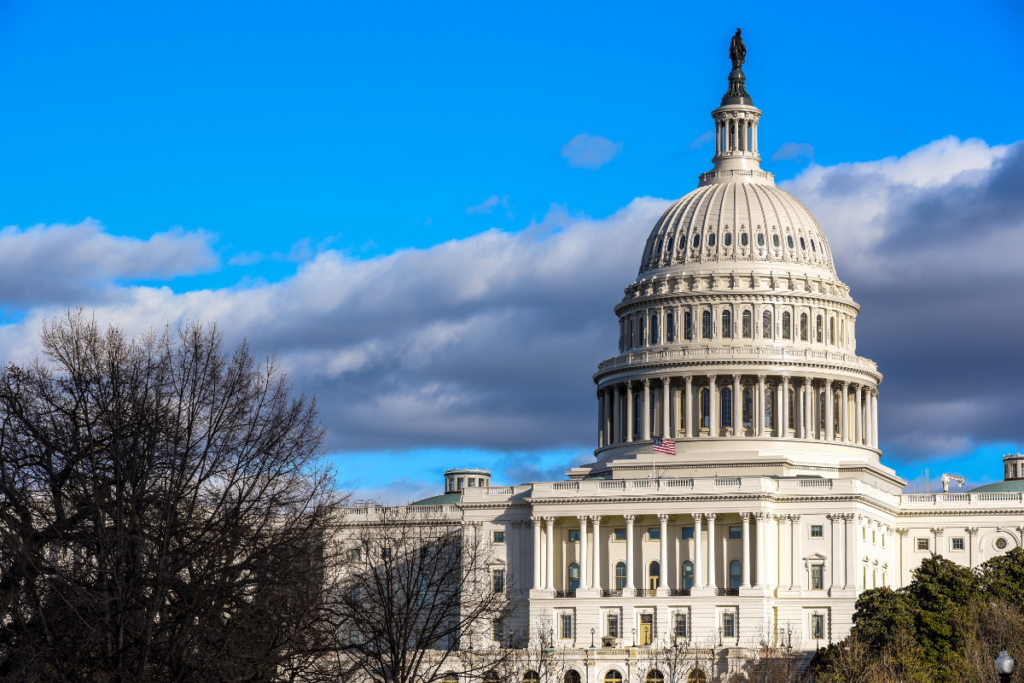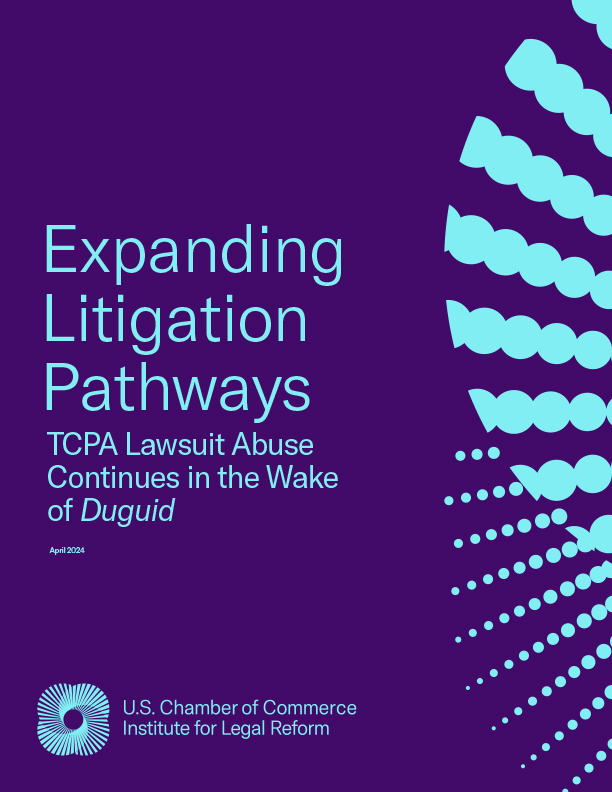The Telephone Consumer Protection Act (TCPA) was signed into law in 1991—when everyone had a landline—to curb the increase of annoying telemarketing practices. Yet, the law hasn’t changed much even though technology has moved from analog to digital, exposing organizations and companies that use new ways of communicating with customers to increased liability. That’s why a former Federal Communications Commission (FCC) Chairman dubbed the TCPA “the poster child for lawsuit abuse.”
ILR’s latest research, Expanding Litigation Pathways: TCPA Lawsuit Abuse Continues in the Wake of Duguid, examines how the plaintiffs’ bar has pursued abusive litigation under the TCPA despite the Supreme Court’s 2021 Facebook v. Duguid decision, which narrowed the definition of “autodialer,” a key threshold issue for liability under the statute. The paper points out that TCPA lawsuit filings declined sharply immediately after Duguid but are rising again.
The paper examines how the plaintiffs’ bar has found new ways to exploit the TCPA in the three years since Duguid. A few of their tactics include pushing the boundaries of the Court’s autodialer definition and using other elements of the statute to bring TCPA claims, such as claiming that SMS text messages fall under the TCPA, even though text messages didn’t exist in 1991. The plaintiffs’ bar also pivoted to the states, pushing for enactment of “mini-TCPA” laws to drive lawsuits. For example, Florida saw the number of TCPA claims increase after a mini-TCPA law was enacted in 2021.
ILR’s research has found that more lawsuits haven’t resulted in more benefits for consumers. In the case of Florida, the state hasn’t seen a decrease in the volume of robocalls, which was one of the stated goals of its mini-TCPA. Worse, the research found that most TCPA-related litigation across the country is driven by only 10 law firms in any given year. Over half of federal TCPA cases are class actions, which is significantly higher than other federal consumer protection statutes and is growing.
TCPA litigation has turned into a cottage industry for plaintiffs’ lawyers looking for new ways to increase paydays rather than end non-stop robocalls. ILR’s research paper encourages policymakers to resist calls by the trial bar to increase liability for businesses simply wanting to use new technology to communicate with customers.


